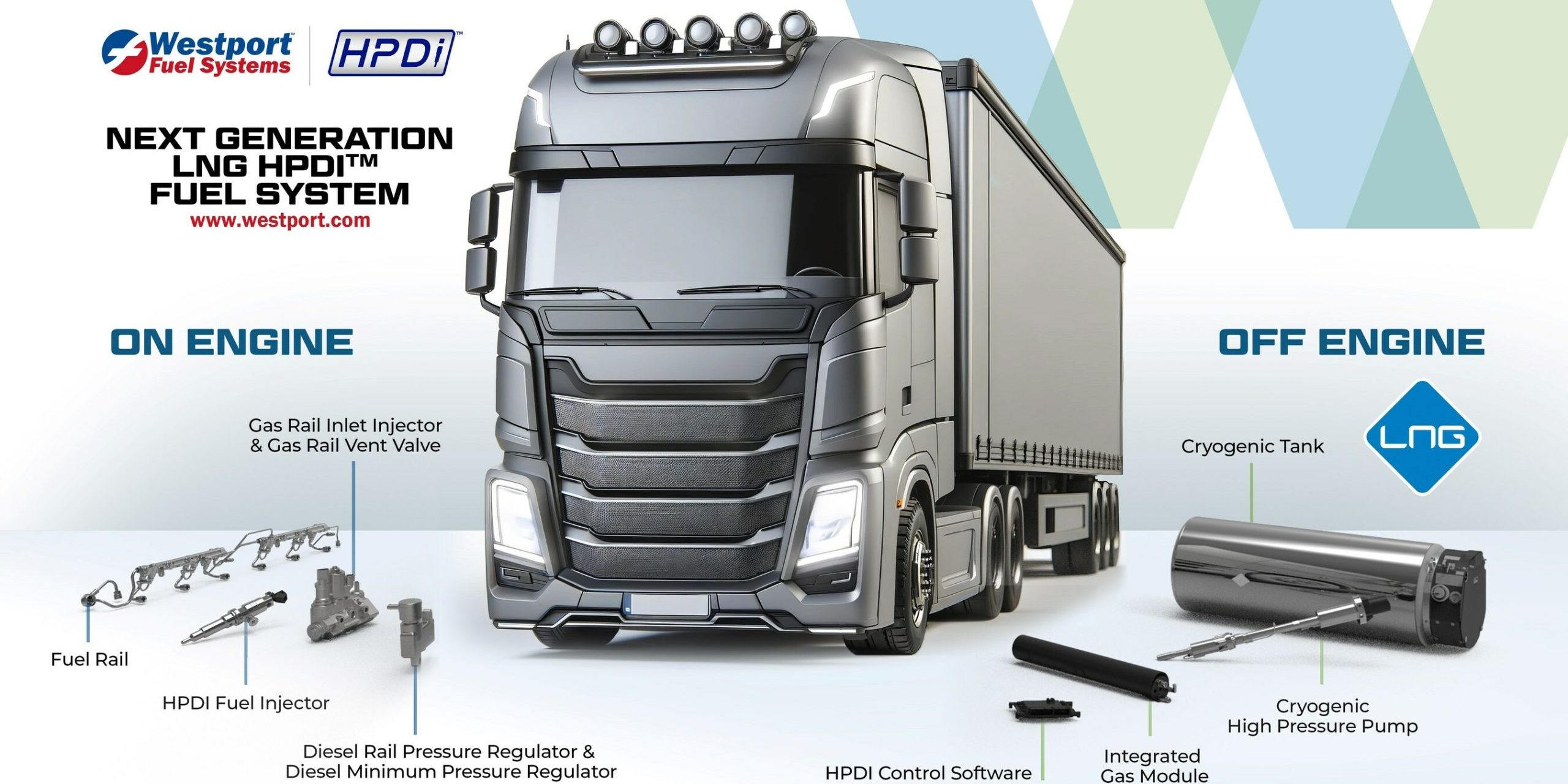Westport Fuel Systems announced that it has been awarded a development program contract by a global heavy truck manufacturer to adapt its Next Generation LNG HPDI fuel system to meet the Euro 7 emissions requirements for heavy-duty vehicle applications. The value of the development program is estimated to be USD 33 million and will be funded by the original equipment manufacturer (OEM). Work on the program is already underway with a targeted launch of the new LNG and bio-LNG fueled product within a few years.
Westport’s Next Generation HPDI fuel system has been developed to meet the Euro 7 standards and will introduce the following new features:
- Improved fuel pressure control, thereby improving fuel efficiency
- Supporting higher pressure fuel supply systems to maximize engine performance and Brake Thermal Efficiency (BTE)
- Improved reliability and durability
- On Board Fuel Consumption Monitoring (OBFCM)
“This new program exemplifies our longstanding relationship with the OEM, emphasizing our shared vision of creating sustainable transport solutions around the world. Our LNG HPDI fuel system enables long-haul trucks to significantly reduce CO2 emissions now while fully meeting a fleet’s performance demands for payload, performance, and durability, as well as stringent Euro 7 emission regulations,” said Anders Johansson, vice president of Heavy-Duty OEM for Westport Fuel Systems.
“Our collaboration advances our realistic, affordable and immediately available solution for fleets to achieve their decarbonization goals as well as driving the acceleration and scaling of development for global market adoption for a variety of OEMs,” he added.
The program marks Westport’s next major engagement with the OEM to develop low carbon solutions for heavy-duty trucking with the development of Westport’s Next Generation LNG HPDI fuel system encompassing on and off engine components. This new fuel system is an evolution of the existing HPDI LNG truck application from the OEM that is commercially available today and has been on the road for several years.
The Euro 7 standards are aimed at reducing air pollution from road transport, addressing pollutants such as nitrogen oxides (NOx) and particulate matter, by lowering emissions limits from new motor vehicles sold in the European Union, versus the standards currently set out in Euro VI. Final agreement on the new regulation remains outstanding, but for heavy-duty vehicles the European Commission’s proposal is to implement the new standards from mid-2027.
Source: Westport







